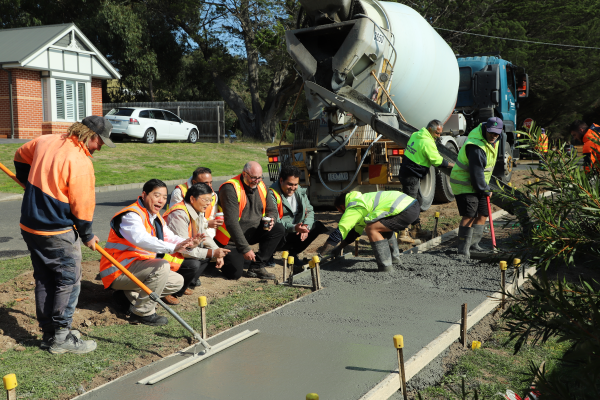RMIT and council trial world-first coffee concrete footpath

Freshly brewed coffee concrete may be coming to a street near you after RMIT University teamed up with Macedon Ranges Shire Council to conduct a world-first coffee concrete footpath trial.
The RMIT team will partner with Australian-owned BildGroup, a civil infrastructure, asphalt paving and road profiling company, to deliver these circular-economy projects. RMIT lead author Dr Rajeev Roychand and his colleagues at are set on transforming this waste into a valuable resource for the construction industry.
“It’s exciting to see this world-first trial of our coffee and wood-based biochar in these footpaths in collaboration with Macedon Ranges Shire Council. Sand is getting scarce over time and this waste can replace up to 15% of the sand in concrete,” Rajeev says.
Australia generates 75 million kilograms of ground coffee waste yearly, with most going to landfills. This could replace up to 655 million kilograms of sand in concrete, being a denser material. Coffee waste cannot be added directly to concrete, however, as it would decompose over time and weaken the building material. Instead, the team has developed a technique to make concrete 30% stronger using coffee biochar made with a low-energy process without oxygen at 350oC.
Several other upcoming infrastructure projects around Victoria, Australia, will also turn spent coffee grounds into biochar and transform this waste into a valuable resource for the construction industry.
